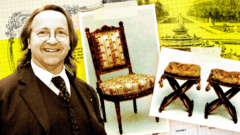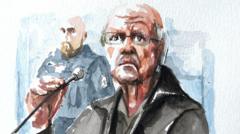In a shocking case from Havlickuv Brod, Czech Republic, a 22-year-old man and two family members have been charged with operating an unlicensed dental clinic, performing complex procedures that included root canals. Over two years, the trio illegally treated dozens of patients, utilizing instructions sourced from the internet to execute dental procedures, lacking any formal training or certification.
Czech Authorities Charge Fake Dentist and Assistants Operating from Home Clinic

Czech Authorities Charge Fake Dentist and Assistants Operating from Home Clinic
A 22-year-old man and his two assistants face charges for running an illegal dental practice out of their home, treating patients based on online instructions.
The police investigation revealed that the man, posing as a dentist, was responsible for a range of treatments, including tooth extractions and administering anesthesia with materials provided by a 50-year-old female nurse accomplice. A 44-year-old male also assisted in producing dental prosthetics. Together, they reportedly generated around four million Czech koruna (approximately $185,500) from their illegal activities.
Despite their guilty pleas, authorities have not disclosed any complaints from patients regarding their treatment. The clinic's operations came to light earlier this month, leading to the arrest and subsequent charges of running an illegal business, money laundering, attempted assault, drug dealing, and theft. Each individual could face up to eight years in prison.
Roman Šmucler, president of the Czech dental chamber, noted a troubling trend, stating that around ten cases involving fake dentists are reported annually in the country, with three currently pending review by authorities. The issue has prompted a legislative response, as the Czech parliament recently passed a bill aimed at easing the employment process for dentists from non-EU countries.
This case serves as a stark reminder of the potential dangers associated with unregulated medical practices and the pressing need for stringent enforcement in the health sector.
Despite their guilty pleas, authorities have not disclosed any complaints from patients regarding their treatment. The clinic's operations came to light earlier this month, leading to the arrest and subsequent charges of running an illegal business, money laundering, attempted assault, drug dealing, and theft. Each individual could face up to eight years in prison.
Roman Šmucler, president of the Czech dental chamber, noted a troubling trend, stating that around ten cases involving fake dentists are reported annually in the country, with three currently pending review by authorities. The issue has prompted a legislative response, as the Czech parliament recently passed a bill aimed at easing the employment process for dentists from non-EU countries.
This case serves as a stark reminder of the potential dangers associated with unregulated medical practices and the pressing need for stringent enforcement in the health sector.
















